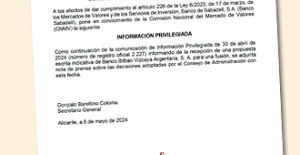“The most consumed psychoactive substance in France”, alcohol is also the most taboo. To be convinced of this, one only has to look at the battles between alcohol lobbies and addictologists as soon as a public health action is considered to prevent its devastation, or a criticism is expressed on the representation of this substance. . To take only recent examples, the video showing Emmanuel Macron drinking a “dry” beer on the sidelines of a rugby match shocked addictologists; As for the latest campaign by the Ministry of Health aimed at young people, it sparked heavy mockery while other campaigns aimed at the entire population were canceled shortly before their launch.
However, alcohol deserves to become "a health issue for all", believes the High Authority for Health (HAS), which is releasing this Thursday a set of tools intended for health professionals, to help them undertake an "identification systematic, early and regular for all consumers, and not just those whose consumption is considered problematic. “All consumption must be able to be questioned,” believes the HAS. Including, therefore, so-called “lower risk” consumption (maximum 2 glasses per day, not every day).
And for good reason: almost everyone drinks and alcohol is considered a product as festive as it is heritage, even though it carries risks for the person drinking as well as for those around them “whatever the methods of use” , insists the HAS. It is consumed by 87% of those over 18 and 77% of young people aged 17 (nearly half of whom binge drink). This is therefore a risky substance for the individual and for society... but which everyone appreciates. An article published in the journal Addiction in 2011 clearly illustrated this paradox of our relationship with alcohol: the authors interviewed 48 experts on the risks and benefits of several addictive substances. Alcohol was first in terms of harm, both to health and social, slightly ahead of heroin but well ahead of tobacco or ecstasy, for example; but it was also well ahead of the substances that the same experts wanted to be able to consume themselves, and to see consumed by their fellow citizens...
Problem, underlines the HAS: in our society, alcohol is everywhere... except in the singular conversation between the caregiver and his patient! “Talking about the effects sought in alcohol consumption and the risks associated with its use remains difficult,” estimates the HAS. However, it is “the first cause of hospitalization, the second cause of avoidable mortality after tobacco, the second cause of preventable cancer”, its consumption during pregnancy causes “neurodevelopmental disorders” in 0.5 to 1% of live births. , and “it is involved in 30% of fatal road accidents as well as in 30% of cases of violence (physical, psychological or sexual)”, insist the Sages. And “contrary to popular belief, the majority of harm caused by alcohol concerns people who do not suffer from alcohol addiction.” Yet, “many professionals believe that alcohol is only a legitimate issue in the advanced stages of alcohol use disorder.”
The HAS went a little beyond the referral to the General Directorate of Health, which asked it in 2019 to issue recommendations for the care of “people with consumption beyond the new consumption benchmarks of “lower risk alcohol”. Far from focusing on large consumers, HAS is in fact pleading for “systematic, early, regular identification of all uses and support for each person”, and is publishing a guide for all leading professionals. recourse, from the dentist to the medical-social worker via the general practitioner, the pharmacist, the pediatrician... The HAS also reminds that the professional can rely on a whole network of competent partners. This is the advantage of a country that consumes a lot of alcohol: if the network of bars and other drinking establishments is very tight, that of the structures welcoming patients who abuse this product is too!

 In Russia, Vladimir Putin stigmatizes “Western elites”
In Russia, Vladimir Putin stigmatizes “Western elites” Body warns BBVA that "the Government has the last word" in the takeover bid for Sabadell
Body warns BBVA that "the Government has the last word" in the takeover bid for Sabadell Finding yourself face to face with a man or a bear? The debate that shakes up social networks
Finding yourself face to face with a man or a bear? The debate that shakes up social networks Sabadell rejects the merger with BBVA and will fight to remain alone
Sabadell rejects the merger with BBVA and will fight to remain alone The presence of blood in the urine, a warning sign of bladder cancer
The presence of blood in the urine, a warning sign of bladder cancer A baby whose mother smoked during pregnancy will age more quickly
A baby whose mother smoked during pregnancy will age more quickly The euro zone economy grows in April at its best pace in almost a year but inflationary pressure increases
The euro zone economy grows in April at its best pace in almost a year but inflationary pressure increases Children born thanks to PMA do not have more cancers than others
Children born thanks to PMA do not have more cancers than others Apple alienates artists with the ad for its new iPad praising AI
Apple alienates artists with the ad for its new iPad praising AI Duration, compensation, entry into force... Emmanuel Macron specifies the contours of future birth leave
Duration, compensation, entry into force... Emmanuel Macron specifies the contours of future birth leave Argentina: the street once again raises its voice against President Javier Milei
Argentina: the street once again raises its voice against President Javier Milei Spain: BBVA bank announces a hostile takeover bid for its competitor Sabadell
Spain: BBVA bank announces a hostile takeover bid for its competitor Sabadell Berry affair: Jeane Manson victim of a heart problem after a court hearing
Berry affair: Jeane Manson victim of a heart problem after a court hearing Venice Film Festival: Isabelle Huppert will chair the jury of the 81st festival
Venice Film Festival: Isabelle Huppert will chair the jury of the 81st festival Louvre: Delacroix’s “Liberty Leading the People” target of the Riposte Alimentaire collective
Louvre: Delacroix’s “Liberty Leading the People” target of the Riposte Alimentaire collective The Coubertin Spirit, Eternal Memory, Planet of the Apes... Films to watch this week
The Coubertin Spirit, Eternal Memory, Planet of the Apes... Films to watch this week Omoda 7, another Chinese car that could be manufactured in Spain
Omoda 7, another Chinese car that could be manufactured in Spain BYD chooses CA Auto Bank as financial partner in Spain
BYD chooses CA Auto Bank as financial partner in Spain Tesla and Baidu sign key agreement to boost development of autonomous driving
Tesla and Baidu sign key agreement to boost development of autonomous driving Skoda Kodiaq 2024: a 'beast' plug-in hybrid SUV
Skoda Kodiaq 2024: a 'beast' plug-in hybrid SUV The home mortgage firm rises 3.8% in February and the average interest moderates to 3.33%
The home mortgage firm rises 3.8% in February and the average interest moderates to 3.33% This is how housing prices have changed in Spain in the last decade
This is how housing prices have changed in Spain in the last decade The home mortgage firm drops 10% in January and interest soars to 3.46%
The home mortgage firm drops 10% in January and interest soars to 3.46% The jewel of the Rocío de Nagüeles urbanization: a dream villa in Marbella
The jewel of the Rocío de Nagüeles urbanization: a dream villa in Marbella Institutions: senators want to restore the accumulation of mandates and put an end to the automatic presence of ex-presidents on the Constitutional Council
Institutions: senators want to restore the accumulation of mandates and put an end to the automatic presence of ex-presidents on the Constitutional Council Europeans: David Lisnard expresses his “essential and vital” support for François-Xavier Bellamy
Europeans: David Lisnard expresses his “essential and vital” support for François-Xavier Bellamy Facing Jordan Bardella, the popularity match turns to Gabriel Attal’s advantage
Facing Jordan Bardella, the popularity match turns to Gabriel Attal’s advantage Europeans: a senior official on the National Rally list
Europeans: a senior official on the National Rally list These French cities that will boycott the World Cup in Qatar
These French cities that will boycott the World Cup in Qatar Top 14: Josua Tuisova, the expected return of “The Animal”
Top 14: Josua Tuisova, the expected return of “The Animal” Tour of Italy: Alaphilippe beaten in the sprint by Pelayo Sanchez during the 6th stage of the Giro
Tour of Italy: Alaphilippe beaten in the sprint by Pelayo Sanchez during the 6th stage of the Giro Paris 2024 Olympic Games: in video, one of the survivors of the Marseille roundup carried the Olympic flame
Paris 2024 Olympic Games: in video, one of the survivors of the Marseille roundup carried the Olympic flame Table tennis: Félix Lebrun out in the quarterfinals in Jeddah
Table tennis: Félix Lebrun out in the quarterfinals in Jeddah


















